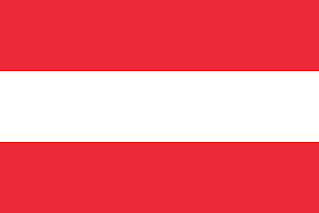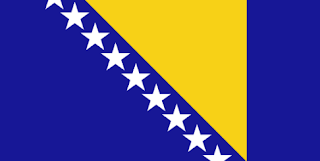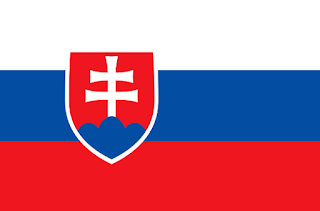FACTS ABOUT AUSTRIA
AMAZING FACTS ABOUT AUSTRIA
1. Austria is officially known as the “Republic of Austria”
2. Vienna is the capital city of Austria.
3. The total population of Austria is 8,754,413.
4. The natives of Austria are called
Austrians.
5. The Euro (EUR) is official currency of
Austria.
6. Austria shares a border with Czech
Republic, Germany, Hungary, Italy, Liechtenstein, Slovakia, Slovenia, and
Switzerland.
7. It is a landlocked country in Central
Europe.
8. Most of the taxis in Austria are
Mercedes.
9. Austria, which was once the center of
power for the large Austro-Hungarian Empire, was reduced to a small republic
after its defeat in World War I (28 Jul 1914 – 11 Nov 1918).
10.
During the 17th and
the 18th century, Austria was a great power of Europe.
11.
Austria was occupied by many Celtic
tribes in pre-Roman times.
12.
Austria became independent on October
26, 1955.
13.
After the 1918 collapse of the Austrio –
Hungarian Empire, the country experienced more than 25 years of social and
economic turbulence.
14.
Austria is also the country where first
postcards were issued. Austria is slightly smaller than Maine (US state) in the
area.
15.
Vienna was involved in nine major wars
in the 19th century. In the 19th century, the average life expectancy in Vienna
was about 38 years.
16.
Mozartkugel – Austrian finest chocolate
originated in the birthplace of Mozart.
17.
Between 1938 and 1955 Austria was under
Nazi Germany.
18.
The Viennese Clock Museum is the place
where more than 1,000 clocks are kept. The center of attraction of the museum
is the astronomical clock which was built in 1679.
19.
The Austrian National Library located in
Vienna, completed in 1726, is one of the world’s major libraries. The library
has a collection dating back to the 14th century and today, it houses more than
2.5 million books. The Library was formerly the court library to the Hapsburgs.
 |
| Austrian National Library. Image source: Wikipedia.org |
20.
Austria has sworn itself to a neutral
position since the World Wars.
21.
The highest point of the country is at
3,798 m – Grossglockner (First ascent: 28 July 1800; location: Carinthia &
East Tyrol, Austria.)
22.
A very small percentage of the Austrians
is involved in agriculture (share of agricultural production is less than 1.5 %
of the GDP.) The average size of a farm in Austria is 45 acres.
23.
Austria is also considered as Europe’s
“organic farming country no. 1”. Austrians give emphasis on quality rather than
quantity. The country promotes the reduction in the use of chemical fertilizers
and pesticides.
24.
Austrian corn yields on average are
higher than in the United States of America. Austria rejects the use of biotechnology
for the production of crops.
25.
It is also the first country in the
world to register the first organic farm (1927) and also the first country to
establish national regulations for organic farming.
26.
Austria has 9 federal states – Vienna,
Burgenland, Carinthia, Lower Austria, Upper Austria, Salzburg, Styria, Tyrol,
and Vorarlberg.
27.
Austria extends 360 miles from east to
west.
28.
Lake Neusiedl is the largest natural
lake in Austria. It has a surface area of 315 square kilometers and it is 36
kilometers long.
29.
The country meets over 60% of its
electricity needs by means of renewable energy sources.
30.
The country lies at the center of the
European traffic between east and west along the great Danubian trade route
between north and south.
31.
The country shares its longest border
with Germany which is approximately 800 kilometers long.
32.
Austria, Switzerland, and Luxembourg are
the few landlocked countries in Europe.
33.
The biggest Danube port in Austria is in
Vienna and Linz.
34.
Soccer, volleyball, basketball, ballet
and dancing, are among the most popular sports activities in the country.
35.
Vienna is the capital and the largest
city in the country.
36.
There are 26 Schengen countries –
Passport and all other types of border control at the mutual borders of these
26 member countries are not implemented. The region covers a population of over
400 million people and operates very much like a single state for international
travel purposes.
37.
Austria and Switzerland are called the
winter sports capital of Europe.
38.
Austria is also famous for historic
cities, villages and magnificent scenery of the Alps.
39.
Danube River is Europe’s second-longest
river after the Volga River. It originates in Germany and flows through
Austria, Slovakia, Hungary, Croatia, Serbia, Romania, Bulgaria, Moldova, and
Ukraine. The river is approximately 2880 km long and it empties into the Black
Sea. It is the only river in the world which flows through ten countries.
40.
2/3rd of
Austria is covered by woods and meadows. Forests account for 2/5th of the country.
Hence, Austria is one of the most densely forested countries in central Europe.
41.
The largest ice cave system in the
world– Eisriesenwelt –belongs to Austria. The system is located in Werfen about
40 km south of Salzburg. More than 200,000 tourists visit the ice caves every
year.
42.
The country is also home to the world’s
oldest zoo – The Tiergarten Schönbrunn. It is located on the grounds of the
famous Schönbrunn Palace in Vienna, Austria. It was founded in 1752. The zoo is
home to more than 700 animal species, some of them threatened. Its main purpose
is to provide a center for species and general nature conservation.
43.
The Krimml Falls is the highest
waterfall in Austria and central Europe. It has a height of 380m, and it is a
tiered waterfall. There are three stages; upper stage – 100m, middle stage –
140m, and the lowest stage – 140m.
44.
The Danube River which is 2,860 km long
is the chief waterway of the country.
45.
Ibex is a species of mountain goats in
Austria. They are found in the Alps. They were near extinct but were restored
in the last few years.
46.
Acid rain is an issue in Austria. Almost
37% of the country’s forest suffered damages at the hand of acid rain and other
forms of pollution.
47.
Neusiedler See is the lowest point in
Austria at 115m above sea level.
48.
The 2/3rd of the
country is above 500m.
49.
It rains a lot in the country, almost
more than 200 times a year.
50.
Austria shares its longest border with
Germany.
51.
Austria exports around 30% of the wine
produced in the country.
52.
Austria has the third-highest per capita
income from tourism in the European Union. The country attracts more than 30
million tourists every year.
53.
Austria is one of the richest countries
per capita in the world. Austria’s GDP per capita (PPP) is $47,700 (2016 est.)
54.
Austria adopted the Euro on 1 January
1999. However, the currency existed as only ‘book money’. On 1 January 2002,
euro banknotes and coins were introduced in Austria. The schilling and the euro
had a legal tender status which ended on 28 February 2002.
55.
There are no nuclear power plants in
Austria.
56.
Due to the slowdown in the economy after
the World War II, a large number of Austrians emigrated to the U.S., Canada,
and Australia.
57.
There are a total of 21 Nobel
Prize winners from Austria.
58.
Austrian families are small and
appearance matters a lot to them. They are meticulous people.
59.
German is the official language of
Austria. However, there are some other local official languages as well
including Slovene, Hungarian, Croatian, and Burgenland.
60.
Rudolf Steiner is a famous Austrian
researcher and anthroposophist (the philosophy founded by Rudolf Steiner that
postulates the existence of an objective, intellectually comprehensible
spiritual world, accessible to human experience through inner development).
61.
Most of the people of Austria speak
Bavaria, which is a dialect of the German language.
62.
Austria is ranked at the 24th spot on
the Human Development Index.
63.
Austria became the member of the
European Union in 1995. Finland and Sweden also joined the European Union in
the same year.
64.
Austria became the 70th member of the
United Nations Organization (UN) on 14 December 1955.
65.
Austria is also the founding member of
Organisation for Economic Co-operation and Development (OECD). The organization
has 35 member countries to this day.
66.
Austria is also a part of Border-less
Europe. Students from various European countries study is Austria and vice
versa.
67.
Bavaria (South Germany) is a close
cultural relative of Austria.
68.
Austria is also rated as the fifth most
patriotic country in the world. Many Austrians derive their identity from the
state/region they belong to.
69.
Austrians are very hospitable. They
enjoy eating, drinking and chit-chatting with friends and relatives.
70.
Austrians also have one of the highest standards
of living in the world.
71.
The president of Austria is elected by
the people for a term of 6 years. However, the president is just a
representative. The federal chancellor runs the day-to-day operations of the
country.
72.
Ethnic Austrians constitute a vast
majority of its population.
73.
Austria is the only European Union
nation that is not a member of NATO.
74.
Beethoven, widely considered as the
greatest pianist and composer of all time, was born in Germany on December 16,
1770. He died at the age of 56 in Austria. He composed some of his most
important work during the last 10 years of his life. Notably, he was unable to
hear during his last years.
75. Hitler, the famous ruler, was an
Austrian and not German. He was born in Austria-Hungary on 20 April 1889.
76. Austria is also home to the world’s
oldest still-operating restaurant – St. Peter Stiftskeller. It was established
in 803 and now it is still-operational and more than 1200 years old. It is said
that Christopher Columbus, Johann Georg Faust, and Wolfgang Amadeus Mozart have
been served here.
77.
Vienna is home to more than 2.5 million
graves in its central cemetery. Vienna has some 52 suburban cemeteries. The
Vienna Central Cemetery is one of the largest cemeteries in the world. Contrary
to what the name suggests, the cemetery is situated not in the city of Vienna
but on the outskirts.
78.
Funerals have become an expensive
obsession in the country and people would set aside money for their special
send-off.
79.
Vienna is also among the world’s most
livable cities. It ranks at number two position on the list of world’s top ten
most livable cities placed right after Melbourne - which tops the list.
80.
The father of psychoanalysis – Sigmund
Freud (6 May 1856 – 23 September 1939) is an Austrian.
81.
The father of Doppler Effect, Christian
Doppler (29 November 1803 – 17 March 1853) was born in Salzburg, Austria.
Doppler Effect states that the observed frequency of a wave depends on the
relative speed of the source and the observer.
82.
The father of modern genetics – Gregor
Mendel (20 July 1822 – 6 January 1884) is also an Austrian.
83.
Wolfgang Amadeus Mozart (27 January 1756
– 5 December 1791), born in Salzburg, is also among the famous Austrians. He
was widely recognized as one of the greatest composers in the history of the
Western music. He was gifted with a near-perfect memory. He composed since he
was five years old.
84.
Beethoven who lived most of his life in
Austria experienced deafness starting the age of 26. He produced some of his
life’s best work – Symphony No 9 in D minor.
85.
Ernst Mach (18 February 1838 – 19
February 1916) introduced the system of Mach number in 1887. The speed of sound
is measured in Mach numbers. The ratio of one’s speed to that of sound is named
the Mach number in his honor. The speed of sound (1 Mach) is equal to 1234.8
kilometer per hour.
86.
In 2017, Austria is the 95th most
populous country in the world. (8,754,413 – July 2017 Est.)
87.
Freedom of religion is a fundamental
right in Austria.
88.
More than 50% men and 20% women in
Austria are overweight. These stats are the highest in the European Union.
89.
Porsche – the automobile company – is
also owned by an Austrian, Ferdinand Porsche (3 September 1875 – 30 January
1951). He also designed the Volkswagen Beetle, the Mercedes-Benz. He founded
the Porsche car company in 1931.
90.
Austria also has one of the top-earning
chefs in the world – Wolfgang Puck. His net worth is estimated to be $75
million.
91.
For any drink to be classified as an
alcoholic drink in Austria, it must contain 20% alcohol. This quantity is twice
the quantity of alcohol found in alcoholic drinks in other European countries.
92.
Austrians work the longest hours – 45
hours per week among the other working population of the countries in the
European Union.
93.
Punctuality is a valuable trait in
Austria.
94.
Prostitution is legal in the country.
95.
In Austria, coffee shops, as well as Mc
Donalds, serve beer.
96.
Retail and grocery shops are closed on
Sundays.
97.
One can fetch money after returning beer
bottles to the grocery store. This is one of the reasons why they are the leaders
in recycling waste items.
98.
Austrians prefer river or lake instead
of the pool.
99.
In Austria, people stay in a
relationship longer than other countries. Couples usually marry after 8 and
more years of dating.
100.
Austrian food is influenced by the Hungarian, German and the Italian
cuisines.
101.
Potatoes are popular in the country.
Potatoes are served sliced and friend and panfried as well.
102.
For breakfast, the Austrians like to
consume bread and bread roll made from white and wholemeal flour which is
coupled with muesli.
103.
The country is also famous for sweet
desserts and cakes – Sachertorte which is a chocolate cake and Strudel, which
is a pastry roll filled with apples and cottage cheese.
104.
Gelato can be found everywhere in the
country.
105.
Austrian food is influenced by
Hungarian, German and Italian traditions.
106.
Austria also has one of the oldest flags
in the world.
107.
Vienna, Austria’s capital city is home to the world’s largest Emerald.
108.
Since 100 years, downhill skiing is the
most popular sport in Austria. Speeds of up to 130 km/h (81 mph) are common in international competition. The first handbook on skiing was published in Austria in 1897 by Mathias Zdarsky. Probably Austria’s first ski instructor, he
was an early ski pioneer.
109.
The Spanish Riding School in Vienna is world famous for Lipizzan Stallions. Here horses are trained using the traditional methods that are hundreds of year old. The Lipizzan is one of Europe’s oldest breeds of horses (400 years and more.)
110.
Due to the confusion between Austria and Australia, a large number of postages were delivered to Australia instead of Austria. Hence, the Australian post offices had to use a special rubber stamp that read “redirected to Austria in Europe”.
111.
Austria is one of the top recyclers in
Europe. The country recycles almost 63% of the waste it produces.
112.
You are not allowed to make a right turn
at a red light in Austria. It is only allowed when sign #25 is present. 80
mph on highways is the speed limit.
113.
TVs and air conditioning are not so
common in Austria.
114.
Local people learn to ski when they are
in the early years of their lives.
115.
Austria Exports:
machinery and equipment, motor vehicles and parts, paper and paperboard, metal
goods, chemicals, iron and steel, textiles, and foodstuffs.
116.
Austria Imports:
machinery and equipment, motor vehicles, chemicals, metal goods, oil and oil
products, natural gas and foodstuffs.
117. The internet country code for Austria is .at




Comments
Post a Comment